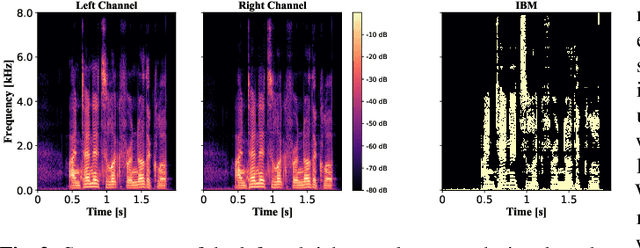Binaural Speech Enhancement Using Deep Complex Convolutional Transformer Networks
Paper and Code
Mar 08, 2024



Studies have shown that in noisy acoustic environments, providing binaural signals to the user of an assistive listening device may improve speech intelligibility and spatial awareness. This paper presents a binaural speech enhancement method using a complex convolutional neural network with an encoder-decoder architecture and a complex multi-head attention transformer. The model is trained to estimate individual complex ratio masks in the time-frequency domain for the left and right-ear channels of binaural hearing devices. The model is trained using a novel loss function that incorporates the preservation of spatial information along with speech intelligibility improvement and noise reduction. Simulation results for acoustic scenarios with a single target speaker and isotropic noise of various types show that the proposed method improves the estimated binaural speech intelligibility and preserves the binaural cues better in comparison with several baseline algorithms.
 Add to Chrome
Add to Chrome Add to Firefox
Add to Firefox Add to Edge
Add to Edge